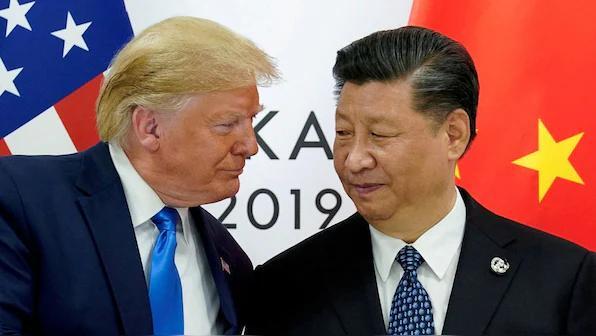
China Refuses to Join Denuclearisation Talks with US & Russia
In a move that has sparked concerns over the global nuclear landscape, China has refused to join trilateral denuclearisation talks with the United States and Russia. This decision comes after US President Donald Trump’s recent call to include Beijing in future negotiations. According to a report by Moneycontrol, Chinese Foreign Ministry Spokesperson Guo Jiakun stated that the expectation was “neither reasonable nor realistic” due to the significant differences in nuclear capabilities between China and the US.
The development is significant, as it may hinder efforts to reduce nuclear arsenals and promote global disarmament. The trilateral talks were aimed at discussing ways to reduce the number of nuclear weapons held by the three countries, which collectively possess more than 90% of the world’s nuclear stockpile. The refusal by China to participate in the talks may lead to a stalemate in the denuclearisation process.
The Chinese Foreign Ministry Spokesperson’s comments were in response to Trump’s recent statement, where he called for China to join the denuclearisation talks. Trump’s proposal was seen as an effort to pressure Beijing to reduce its nuclear capabilities and align with the US and Russia’s goals. However, China has rejected the offer, citing the significant difference in nuclear capabilities between the three nations.
China’s nuclear arsenal is much smaller compared to those of the US and Russia, with estimates suggesting that it has around 280 nuclear warheads. In contrast, the US has over 3,800 nuclear warheads, while Russia has around 3,500. The significant disparity in nuclear capabilities has led China to reject the idea of joining the trilateral talks, stating that it would be an unequal negotiation.
Guo Jiakun’s comments were also seen as a rebuke to the US, which has been critical of China’s nuclear modernization plans. The US has accused China of expanding its nuclear capabilities, which could potentially destabilize the region. However, China has denied these claims, stating that its nuclear modernization plans are aimed at ensuring national security and maintaining strategic deterrence.
The refusal by China to join the denuclearisation talks has sparked concerns over the global nuclear landscape. The lack of participation by China may lead to a stalemate in the denuclearisation process, which could have far-reaching consequences for global security. The nuclear arsenals of the US, Russia, and China are a significant threat to global security, and their reduction is crucial for promoting peace and stability.
The Chinese Foreign Ministry Spokesperson’s comments have also led to speculation over the future of the denuclearisation talks. The US and Russia have been engaged in trilateral talks on denuclearisation since 2017, with the goal of reducing nuclear arsenals and promoting global disarmament. However, the refusal by China to participate in the talks may lead to a re-evaluation of the denuclearisation process.
In conclusion, China’s refusal to join trilateral denuclearisation talks with the US and Russia is a significant development that has sparked concerns over the global nuclear landscape. The significant difference in nuclear capabilities between the three nations has led China to reject the idea of joining the talks, citing an unequal negotiation. The refusal by China to participate in the talks may lead to a stalemate in the denuclearisation process, which could have far-reaching consequences for global security.



